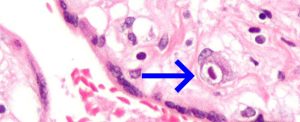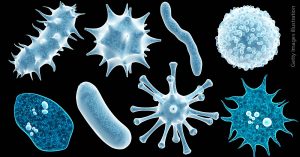Coffee, the elixir of life for many, is a morning ritual for millions worldwide. It’s a beverage that’s been enjoyed for centuries, offering a much-needed boost of energy and a comforting warmth. But beyond its familiar taste and aroma, there’s a hidden world of compounds and secrets within your daily cup.
The Hidden Depths of a Coffee Bean
Coffee beans, the source of our beloved brew, are packed with a complex array of substances. When roasted and brewed, these compounds interact to create the flavors, aromas, and effects we associate with coffee. Here are some of the key players:

Caffeine: The most well-known stimulant, caffeine, is responsible for the increased alertness and focus we experience after drinking coffee. It works by blocking adenosine receptors in the brain, leading to a reduction in fatigue and an improvement in cognitive function.
Chlorogenic Acids: These polyphenols act as antioxidants, helping to protect cells from damage caused by free radicals. They may also play a role in lowering blood sugar levels and reducing the risk of type 2 diabetes.
Antioxidants: Coffee is a rich source of antioxidants, including diterpenes and lignans. These compounds help neutralize harmful free radicals, reducing oxidative stress and potentially lowering the risk of chronic diseases one like heart disease and cancer.
Magnesium and Potassium: These essential minerals are found in coffee and contribute to various bodily functions, including muscle contraction, nerve function, and blood pressure regulation.
The Surprising Health Benefits of Coffee
While coffee has long been associated with potential health risks, numerous studies have revealed a surprising array of benefits:
Reduced Risk of Type 2 Diabetes: Several studies have shown that regular coffee consumption may lower the risk of developing type 2 diabetes.
Lower Risk of Heart Disease: Coffee has been linked to a reduced risk of heart disease, including heart attacks and strokes.
Improved Brain Function: Caffeine can enhance cognitive function, including memory, attention, and reaction time.
Reduced Risk of Certain Cancers: Some studies suggest that coffee may lower the risk of certain types of cancer, such as liver and colorectal cancer.
Liver Protection: Coffee may help protect the liver from damage caused by alcohol and other toxins.
The Dark Side of Coffee
While coffee offers numerous health benefits, it’s important to consume it in moderation. Excessive coffee consumption can lead to side effects such as anxiety, insomnia, and digestive issues. Additionally, coffee can interfere with the absorption of certain medications, so it’s essential to consult with your doctor if you have any concerns.
The Art of Brewing the Perfect Cup
To fully enjoy the benefits and flavors of coffee, it’s crucial to brew it correctly. Here are a few tips for brewing the perfect cup:
Use Freshly Ground Beans: Freshly ground coffee beans retain their flavor and aroma better than pre-ground coffee.
Choose the Right Grind Size: The grind size should be appropriate for your brewing method. A finer grind is best for espresso, while a coarser grind is ideal for drip coffee.
Use Filtered Water: Filtered water removes impurities that can affect the taste of your coffee.
Control the Water Temperature: The ideal water temperature for brewing coffee is between 195°F and 205°F (90°C and 96°C).
Don’t Overextract: Overextraction can lead to a bitter and unpleasant taste. Follow the recommended brewing time for your chosen method.
Conclusion
Coffee, with its complex blend of compounds and flavors, offers a unique and enjoyable experience. By understanding the science behind coffee and brewing it correctly, you can unlock its full potential and reap its numerous health benefits. So, the next time you savor your morning cup, remember the hidden world of wonders within your brew.





